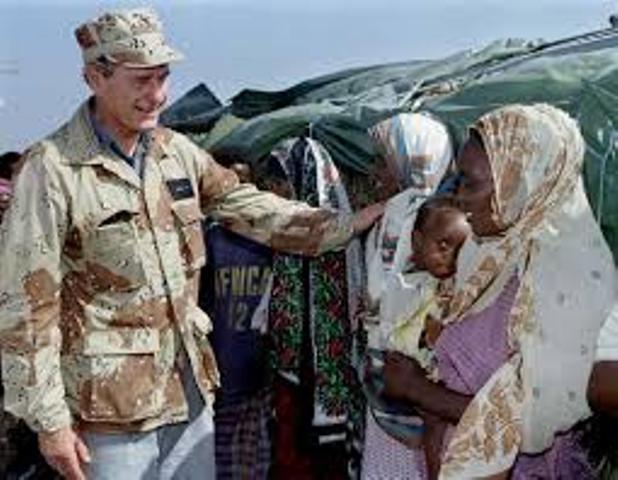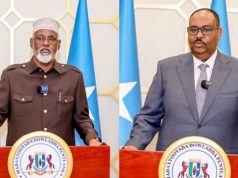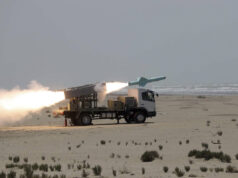
While many have eulogized the former US president for shaping world politics during turbulent times, on the African continent the death of George H.W. Bush received little attention apart from a couple of heads of state who took to Twitter to send their condolence messages. It was only the Kenyan and Ugandan presidents who immediately expressed their sadness at the passing of Bush Senior and how he will be greatly missed. There has also been little reporting in Africa generally about his funeral, perhaps because of his failed foreign policy on the continent.
One day later, Somali president Mohamed Abdullahi Mohamed chose not to dwell on the past. In a brief statement released early on Sunday, he expressed “heartfelt condolences.” The Somali leader described Bush as a true statesman who was committed to world peace and safeguarding democracy.
However, Bush’s demise has refuelled a debate among some Somalis about the US presence in the 1990s. For some, it was an opportunity to remember family members and friends who were killed in crossfire with warlords, while for others, it brought back memories of thousands of starving people who were saved. Let me take you back to the early 1990s when a civil war broke out in Somalia following the overthrow of dictator Siad Barre. The battle between rival clan militias for control of the country raged fiercely. The combination of civil war, a famine after a poor harvest and a prolonged drought meant that thousands of Somalis faced starvation.
But it was not until December 1992 that President George H.W. Bush authorized the deployment of US troops to Somalia to assist with famine relief, working together with the United Nations. Under Operation Restore Hope, US troops dropped food aid to starving Somalis. To many Americans, the Somalia mission was seen as an act of charity, a bid to feed Somalis who were on the brink of starvation. The mission was also perceived to be a mechanism to protect ordinary Somalis from marauding militias who looted anything they set their eyes on and killed at will. The UN estimated that 300,000 Somalis were killed.





